“In women with a low underlying risk of breast cancer
(i.e. most of the population), the symptomatic benefits
of HRT use for up to five years will exceed potential harm”.1
Umbrella
What may the Hormone Therapy and Breast Cancer Umbrella include?
Depending on the Source (DotS) this Umbrella may include:
- Breast Cancer
- Cancer of the Breast
- Hormone Replacement Therapy (HRT)
- Hormone Therapy (HT)
- Menopausal Hormone Therapy (MHT)
Date
Can it be important to be clear about the date of hormone therapy (HT) information?
It can be important to be clear about the date of all information including the date of HT information, because this information may have been updated.
Symptoms or Chronic Conditions
Can it be important to be clear about whether HT information is for the management of menopausal symptoms or the prevention of chronic conditions?
It can be important to be clear about whether HT information is for the management of menopausal symptoms such as hot flushes, night sweats and vaginal dryness or for the prevention of chronic conditions such as cardiovascular disease, cancer and osteoporosis.
Systemic Type
Can it be important to be clear about the systemic type of HT?
It can be important to be clear about whether the HT is for those who have a uterus and need combined HT compared to those who do not have a uterus and need estrogen alone HT.
Uterus
 If a woman has a uterus and chooses to use estrogen plus progestogen therapy, what is her breast cancer risk?
If a woman has a uterus and chooses to use estrogen plus progestogen therapy, what is her breast cancer risk?
On page one in Deciding About Hormone Therapy Use:Potential Risks, published February 2025, according to the Menopause Society (formerly the North American Menopause Society):
No Uterus
![]() If a woman does not have a uterus and chooses to use estrogen therapy, what is her breast cancer risk?
If a woman does not have a uterus and chooses to use estrogen therapy, what is her breast cancer risk?
On page one in Deciding About Hormone Therapy Use: Potential Risks the Menopause Society also note:
Vaginal Oestrogen
Can it be important to be clear about whether HT information is for the use of vaginal estrogen?
It can be important to be clear about whether HT information is for the use of vaginal estrogen.
Breast Cancer History
Can it be important to be clear about whether HT information is for those who have no history of breast cancer and or for those who have a history of breast cancer ?
It can be important to be clear about whether HT information is for those who have no history of breast cancer or for those who have a history of breast cancer.
Breast Cancer Risk
What is currently known about breast cancer risk and HT?
In Does HRT (Hormone Replacement Therapy) Increase Breast Cancer Risk? updated on 15 November 2025, the (United States) Breastcancer.org explain:
On page six of Menopause and Menopause Hormone Therapy: 4. Why Is MHT Important? What Are the Risks? the International Menopause Society’s (IMS) Leaflet for Women for World Menopause Day 2024, the IMS elaborate on:
- Breast cancer: There is a slight increase in risk, especially with long-term use…
It’s important to have a personalized discussion with your healthcare professional to understand how these risks apply to you”.5
On page one in Fast Facts: HRT and Breast Cancer Risk, published September 2025, the British Menopause Society include:
- In women with a low underlying risk of breast cancer (i.e. most of the population), the symptomatic benefits of HRT use for up to five years will exceed potential harm
- Where risk with HRT is estimated to be elevated, the degree conferred is considered small
- Most women will not be diagnosed with breast cancer as a result of their exposure to HRT”.6
Breast Cancer Screening
If a woman chooses to use HT, what is important about breast cancer screening?
In Hormone Replacement Therapy (HRT): Risks – Breast Cancer the (United Kingdom) NHS note:
Breast Cancer History
Is HT not recommended for those with a history of breast cancer?
In The 2023 Practitioner’s Toolkit for Managing Menopause: Management – Considerations for All Women At Menopause, published online 30 October 2023, the authors note:
- “Breast cancer is a contraindication to the use of MHT”.8
In Does HRT (Hormone Replacement Therapy) Increase Breast Cancer Risk? updated 15 November 2025, Breastcancer.org explain:
“Having a detailed conversation with your doctors is important because the risks and benefits are going to vary tremendously from person to person depending on their health, risk for various diseases, menopausal symptoms, and the type of HRT they’re considering taking,” says Carol Fabian, MD, a breast medical oncologist and researcher who studies ways of addressing menopausal symptoms. Fabian is also director of the Breast Cancer Prevention and Survivorship Research Center at the University of Kansas Medical Center in Kansas City, KS”.9
Questions To Ask
What questions may you want to ask about HT and your breast cancer risk?
In Does HRT (Hormone Replacement Therapy) Increase Breast Cancer Risk? What This May Mean for You Breastcancer.org explain:
- What is my personal risk of breast, ovarian, endometrial, and other types of cancer? How will this risk be affected by HRT?
- What is my personal risk of other conditions that HRT can affect, such as heart disease and stroke?
- Which type(s) of HRT, if any, would you recommend for me?
- Would vaginal estrogen be a good option for me?
- What other options are there — including non-hormonal medicines, complementary therapies, and lifestyle changes — to treat menopausal symptoms and osteoporosis?”10
Follow-Up
If I choose to use HT how can I follow up?
The (United States) Mayo Clinic note:
- “Get regular follow-up care. See your healthcare professional regularly to make sure the benefits of menopause hormone therapy continue to outweigh the risks. You also should continue to have regular screenings, such as mammograms, blood pressure measurement and cervical cancer screening”.11
Health Care Provider
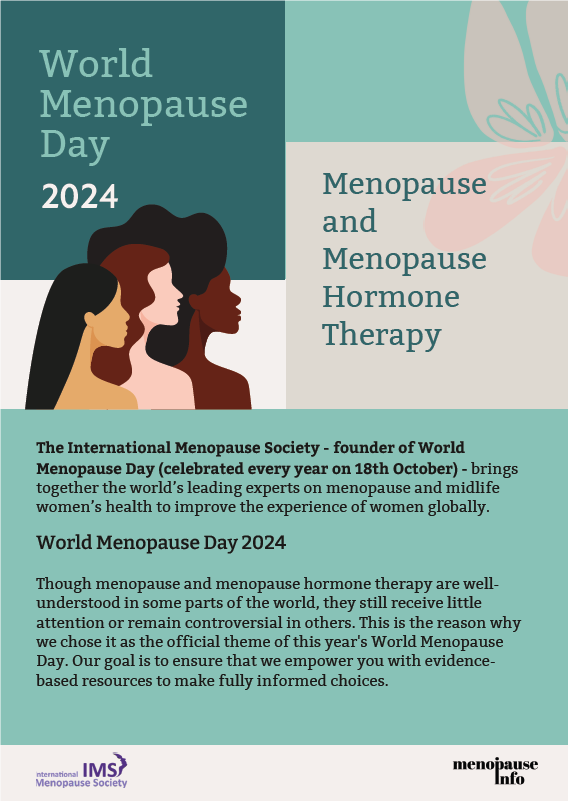 If I choose to use HT what should I do ?
If I choose to use HT what should I do ?
On page three of Menopause and Menopause Hormone Therapy: 1. Who Is MHT For? Women With Existing Medical Conditions the IMS explain:
Health Topics A-Z
Where may I find Health Topics A-Z related to Hormone Therapy and Breast Cancer?
In Health Topics A-Z you may find:
Links
Where may I find Links related to Hormone Therapy and Breast Cancer?
Your Country may have Links similar to:
Links
This Links List to third party websites is neither comprehensive nor exhaustive. Inclusion on this Links List does not imply endorsement or recommendation. Non-inclusion on this Links List does not imply non-endorsement or non-recommendation. Third party websites are not under the control of Meno Martha International Menopause Directory. Third party websites may contain explicit medical images and/or sexual references. Please read Meno Martha International Menopause Directory’s Links Policy before proceeding to a Link. Please contact Webmaster if you experience a problem with a Link.U.S. Menopausal Hormone Therapy Labeling To Be Updated, November 2025
- Celebrating the Removal But Cautioning the Removal of All Warnings on HRT [10 November 2025]
- FDA Direct: Removing Black Box Warnings for HRT (Part 1/2) [10 November 2025]
- FDA Direct: Removing Black Box Warnings for HRT (Part 2/2) [11 November 2025]
- FDA Expert Panel on Menopause and Hormone Replacement Therapy for Women [17 July 2025]
- FDA Removes Black Box Warning on HRT- What Does That Mean for the UK [11 November 2025]
- Fact Sheet: FDA Initiates Removal of “Black Box” Warnings From Menopausal Hormone Replacement Therapy Products [10 November 2025]
- HHS Advances Women’s Health, Removes Misleading FDA Warnings on Hormone Replacement Therapy [10 November 2025]
- IMS Statement: US HHS Revises Black Box Warning for Menopause Hormone Therapy [International Menopause Society] [13 November 2025]
- News From the WHI Study. WHI Responds To FDA Removal of Black Box Warning on Hormonal Therapies [11 November 2025]
- Updated Labeling for Menopausal Hormone Therapy [10 November 2025]
New or Updated
- Does HRT (Hormone Replacement Therapy) Increase the Risk of Breast Cancer? [November 2025]
- Evolving Approaches To Vasomotor Symptoms In Menopause: Novel Pathways and Emerging Therapies [31 October – 02 December 2025]
- Fast Facts: HRT and Breast Cancer Risk [September 2025]
- Menopausal Hormone Therapy for Breast Cancer Patients: What Is the Current Evidence? [30 September 2025]
- Menopausal Hormone Treatment and Breast Cancer [28 January 2026]
- Reassessing Hormone Therapy After Breast Cancer [+ Video] [07 October 2025]
- Videos & Podcasts: Videos – Menopause and Hormone Therapy: Current Perspectives and Controversies [18 October 2024]
- 20 Years of Data Lead To Changes In Perceptions, Usage of Menopausal HT
- Askearlymenopause.org [Ask EM] [+ Video: What Is Early Menopause?]
- Association of Menopausal Hormone Therapy With Breast Cancer Incidence and Mortality During Long-Term Follow-Up of the Women’s Health Initiative Randomized Clinical Trials
- BMS TV: HRT and Bleeding
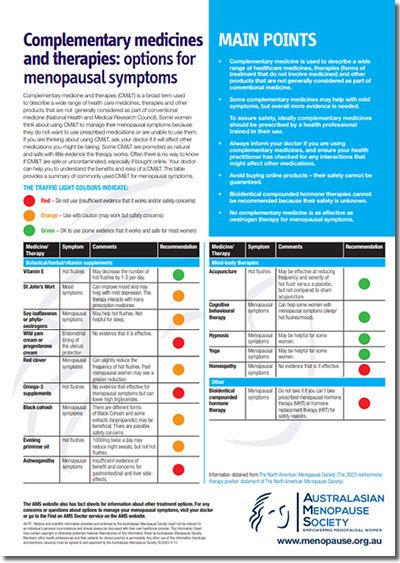 BMS TV: HRT and Breast Cancer: Overall Risks and Benefits
BMS TV: HRT and Breast Cancer: Overall Risks and Benefits- Bioidentical Hormones: Are They Safer?
- Breast Cancer
- Breast Cancer Risk Factors
- Breast Cancer: Risk Factors
- Breastcancer.org
- Breastcancernow.org
- Cancer Diagnosis: 11 Tips for Coping
- Cognitive Behaviour Therapy (CBT) for Menopausal Symptoms
- Complementary & Alternative Therapies: Non-Hormonal Treatments for Menopause Symptoms
- Complementary Medicines and Therapies for Hot Flushes
- Complementary Medicines and Therapies: Options for Menopausal Symptoms
- Consumer Video and Podcast Series: 2023 Consumer Videos and Podcasts – Lifestyle Modification and Prevention of Breast Cancer
- Consumer Video and Podcast Series: 2023 Consumer Videos and Podcasts – NAMS 2023 Nonhormone Therapies Position Statement for Bothersome Menopause Symptoms
- Consumer Video and Podcast Series: 2023 Consumer Videos and Podcasts – New FDA-Approved Nonhormone Option for the Treatment of Hot Flashes
- Consumer Video and Podcast Series: 2024 Consumer Videos and Podcasts – Preparing for Your Menopause Health Care Visit
- Deciding About Hormone Therapy
- Deciding About Hormone Therapy Use
- Does HRT (Hormone Replacement Therapy) Increase the Risk of Breast Cancer?
- Emerging Research In the Management of Menopausal Symptoms
- Emotional Wellness In Menopause
- Endometrial Safety of Low-Dose Vaginal Estrogens
- Endometrial Safety of Low-Dose Vaginal Estrogens [Video]
- Estrogen Dependent Cancers
- Estrogen Therapy and Breast Cancer In Randomized Clinical Trials: A Narrative Review
- Evolving Approaches To Vasomotor Symptoms in Menopause: Novel Pathways and Emerging Therapies
- Experts Answer Your Menopause Questions In New Video
- Fast Facts: HRT and Breast Cancer Risk
- Find A Menopause Practitioner [United States and Other]
- Find A Practitioner [Australasian Menopause Society i.e. Australia and New Zealand]
- Find Your Nearest BMS Menopause Specialist [British Menopause Society]
- Genitourinary Syndrome of Menopause
- HRT & Menopause Extra [Video]
- HRT – Types, Doses and Regimens
- HRT, Misinformation and Navigating the Menopause Media Minefield With Kaye Adams [16 June 2025]
- HRT: Benefits and Risks
- HRT: The History
- Hormone Replacement Therapy
- Hormone Replacement Therapy (HRT)
- Hormone Replacement Therapy (HRT) With Dr Nicky Peel & Prof. David Armstrong [Video]
- Hormone Replacement Therapy (HRT): Benefits and Risks of Hormone Replacement Therapy (HRT)
- Hormone Replacement Therapy (HRT): Types of Hormone Replacement Therapy (HRT)
- Hormone Therapy: Four Things A Mayo Clinic Women’s Health Specialist Wants You To Know [+ Video Courtesy: Mayo Clinic News Network. Name Super/CG: Taryn Smith, M.D./Internal Medicine/Mayo Clinic]
- Hormone Therapy: Is It Right for You?
- Hot Flashes
- Hot Flashes
- Hot Flashes: What Can I Do? [+ Video: What Are the Signs and Symptoms of Menopause?]
- How Mindfulness Meditation Improves Mental Health
- How To Find Relief for Hot Flashes At Night
- How To Prevent Cancer: 6 Ways To Lower Your Risk
- Joint Position Statement By the British Menopause Society, Royal College of Obstetricians and Gynaecologists and Society for Endocrinology on Best Practice Recommendations for the Care of Women Experiencing the Menopause
- Later Years (Around 50 Years and Over): Menopause and Post Menopause Health – Hormone Replacement Therapy (HRT) [+ Video: Is HRT Bad for You?] [Other Languages and Formats]
- Lubricant Alternatives: What To Use and What To Avoid
- Mayo Clinic Minute: How Lifestyle Changes May Help Manage Menopause Symptoms [+ Video]
- Menopausal Hormone Treatment and Breast Cancer
- Menopausal Hormone Therapy and Breast Cancer Risk: Individualization Is the Key To Safety
- Menopause
- Menopause Care After Breast Cancer | Dr Louise Newson
- Menopause: Identification and Management NICE Guideline Published: 12 November 2015 Last Updated: 07 November 2024]

- Menopause: Identification and Manage
- Menopause Map: Downloadable Resources – My Personal Path Print Tools: Questions for Your Health Care Provider

- Menopause Treatment Options After Cancer [Video]
- Menopause and Breast Cancer [Video]
- Menopause and HRT: Fact and Fiction
- Menopause, Perimenopause, Hormone Therapy and Other Treatments With Madelyn Butler, MD [Podcast]
- Menopause: Identification and Management NICE Guideline Published: 12 November 2015 Last Updated: 07 November 2024]
- Menopause: Identification and Management: NICE Guideline [NG23] [07 November 2024]
- Menopause: Things You Can Do
- National Center for Complementary and Integrative Health: Cancer and Complementary Health Approaches: What You Need To Know
- Navigating Menopause Care Resource Guide
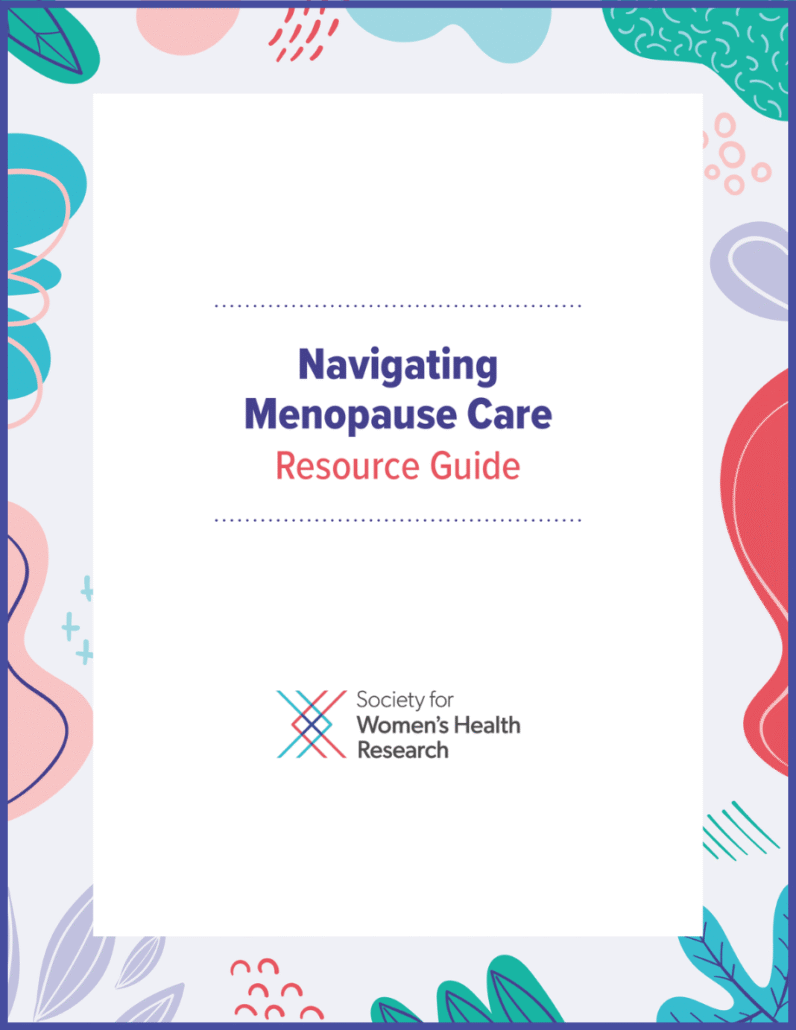
- Reassessing Hormone Therapy After Breast Cancer [+ Video]
- The 2023 Practitioner’s Toolkit for Managing Menopause
- The Menopause Society Statement on Misinformation Surrounding Hormone Therapy
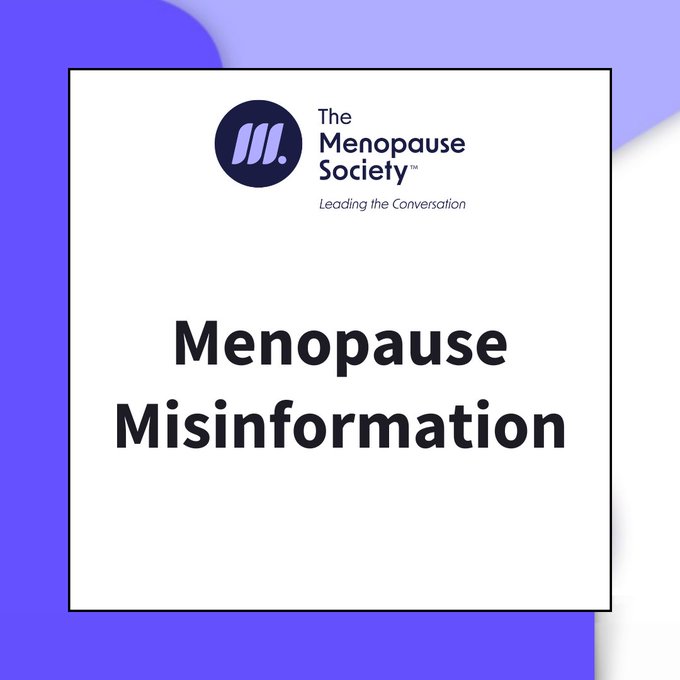
- The Women’s Health Initiative Randomized Trials and Clinical Practice
- The Women’s Health Initiative Randomized Trials of Menopausal Hormone Therapy and Breast Cancer: Findings In Context
- The Women’s Health Initiative Trials: Clinical Messages
- Tips To Help Manage Menopause Symptoms
- ‘Tis But A Scratch: A Critical Review of the Women’s Health Initiative Evidence Associating Menopausal Hormone Therapy With the Risk of Breast Cancer
- Topical Vaginal Oestrogen for Breast Cancer Patients
- Type of Menopausal Hormone Therapy May Influence Cancer Risk
- Types of Hormone Therapy
- Understanding Hormone Replacement Therapy
- Vaginal Dryness: What To Do About It
- Video & Podcast Library: Videos – World Menopause Day 2024: Menopause and Hormone Therapy: Current Perspectives and Controversies
- Videos & Podcasts: Videos – Menopause and Hormone Therapy: Current Perspectives and Controversies [18 October 2024]
- Videos and Podcasts: Videos – Interviews: The Women’s Health Initiative – What Can We Believe?
- Webinars: Lifestyle Medicine
- Webinars: Non-Hormonal Pharmacological Interventions For VMS
- Webinars: Non-Pharmacological Interventions For VMS
- What if HRT isn’t right for me? And is cold-water swimming really the answer to everything? Your Menopause Questions Answered
- World Menopause Day 2024: Leaflet for Women – Menopause and Menopause Hormone Therapy [Multiply Languages]
- World Menopause Day 2024: Poster for Women
- World Menopause Day 2024: The IMS White Paper – Menopause and MHT In 2024: Addressing the Key Controversies [Multiply Languages]
- World Menopause Day 2025 [18 October]
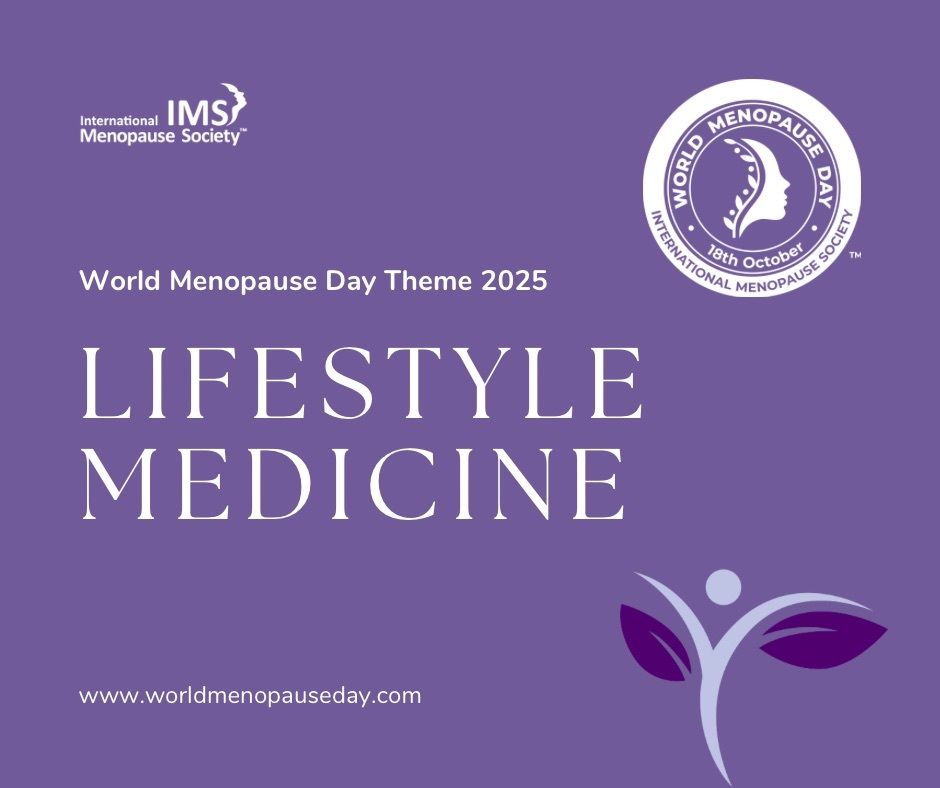
Sources
Where may I find the Sources quoted?
You may find the Sources quoted at:
Sources
- Fast Facts: HRT and Breast Cancer Risk. September 2025. British Menopause Society https://thebms.org.uk/wp-content/uploads/2025/09/12-NEW-BMS-ToolsforClinicians-Fast-Facts-HRT-and-Beast-Cancer-Risk-SEPT2025-B.pdf Accessed: 04 December 2025
- Deciding About Hormone Therapy Use: Potential Risks. 2025:1. Menopause Society https://menopause.org/wp-content/uploads/default-document-library/MenoNote-Deciding-About-HT-2025.pdf Accessed: 04 December 2025
- Deciding About Hormone Therapy Use: Potential Risks. 2025:1. Menopause Society https://menopause.org/wp-content/uploads/default-document-library/MenoNote-Deciding-About-HT-2025.pdf Accessed: 04 December 2025
- Does HRT (Hormone Replacement Therapy) Increase Breast Cancer Risk? Updated: 15 November 2025. Breastcancer.org https://www.breastcancer.org/risk/risk-factors/using-hormone-replacement-therapy Accessed: Accessed: 04 December 2025
- Menopause and Menopause Hormone Therapy: 4. Why Is MHT Important? What Are the Risk? 2024:6. International Menopause Society https://www.imsociety.org/wp-content/uploads/2024/10/2024-WMD-Leaflet_English.pdf Accessed: 04 December 2025
- Fast Facts: HRT and Breast Cancer Risk. September 2025. British Menopause Society https://thebms.org.uk/wp-content/uploads/2025/09/12-NEW-BMS-ToolsforClinicians-Fast-Facts-HRT-and-Beast-Cancer-Risk-SEPT2025-B.pdf Accessed: 04 December 2025
- Hormone Replacement Therapy (HRT): Risks – Breast Cancer. Page Last Reviewed: 08 February 2023. NHS https://www.nhs.uk/conditions/hormone-replacement-therapy-hrt/risks/#breast-cancer Accessed: 04 December 2025
- Davis, S. R., Taylor, S., Hemachandra, C., Magraith, K., Ebeling, P. R., Jane, F., and Islam, R. M. The 2023 Practitioner’s Toolkit for Managing Menopause: Management – Considerations for All Women At Menopause: Menopausal Hormone Therapy. Published Online: 30 October 2023 https://www.tandfonline.com/doi/full/10.1080/13697137.2023.2258783 Accessed: 04 December 2025
- Does HRT (Hormone Replacement Therapy) Increase Breast Cancer Risk? Updated: 15 November 2025. Breastcancer.org https://www.breastcancer.org/risk/risk-factors/using-hormone-replacement-therapy Accessed: Accessed: 04 December 2025
- Does HRT (Hormone Replacement Therapy) Increase Breast Cancer Risk? What This May Mean for You. Updated: November2025. Breastcancer.org https://www.breastcancer.org/risk/risk-factors/using-hormone-replacement-therapy Accessed: Accessed: 04 December 2025
- Hormone Therapy: Is It Right for You? If You Take Menopause Hormone Therapy How Can You Reduce Your Risk? 18 April 2025. Mayo Clinic https://www.mayoclinic.org/diseases-conditions/menopause/in-depth/hormone-therapy/art-20046372 Accessed: 04 December 2025
- Menopause and Menopause Hormone Therapy: 4. Who Is MHT For? Women With Existing Medical Conditions. 2024:3. International Menopause Society https://www.imsociety.org/wp-content/uploads/2024/10/2024-WMD-Leaflet_English.pdf Accessed: 04 December 2025







